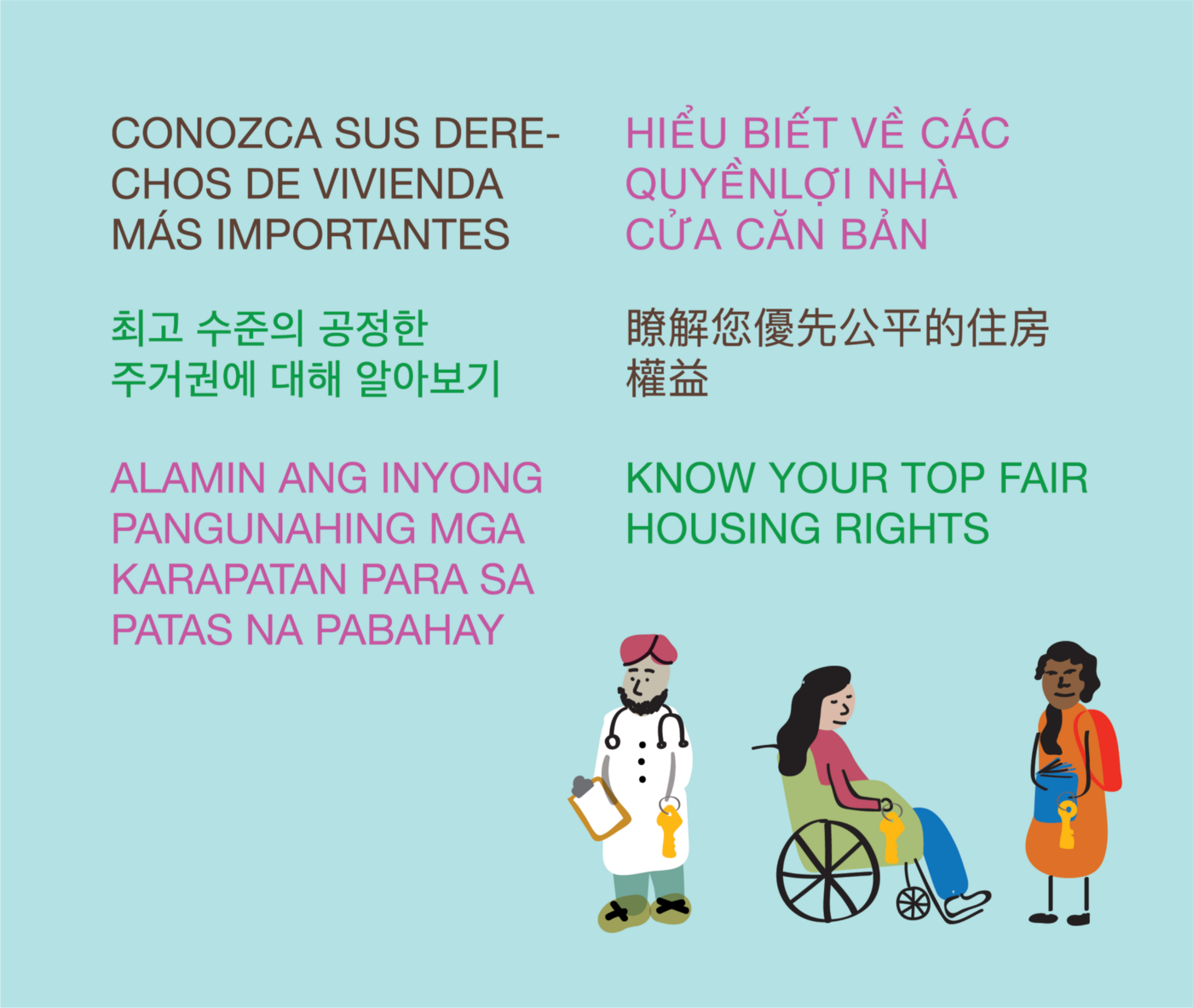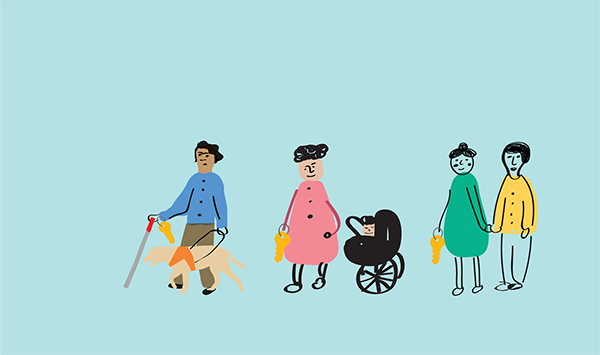
The UCLA Labor Center and California’s Department of Fair Employment and Housing (DFEH) collaborated to produce Know Your Top Fair Housing Rights, a multilingual booklet addressing a critical need in California for culturally attuned fair housing resources.
“California is home to more immigrants than any other state, and we have a substantial population with limited English proficiency,” said Tia Koonse, the Legal and Policy Research Manager at the UCLA Labor Center. “These communities are particularly vulnerable to housing discrimination, and we wanted to provide an easy-to-read resource in relevant languages.”
Given that Asian and Latino communities comprise 53% of the state’s population, the booklet offers educational materials in the most commonly spoken languages (in addition to English): Chinese, Korean, Spanish, Tagalog, and Vietnamese.
“Many people never report housing discrimination because they are unaware of the law and face language barriers,” explained Jeylee Quiroz, an assistant researcher at the UCLA Labor Center. “We hope this booklet will help tenants and housing providers understand housing rights and protections in California and the role of the DFEH.”
The booklet highlights prohibitions against discrimination, harassment, and retaliation, as well as examples of common fair housing law violations. Additionally, it explains the mission of the DFEH and encourages those who have experienced inequities to call, visit, or submit a complaint form online to the DFEH.

Housing rights explained in Know Your Top Fair Housing Rights include:
- The right to be treated equally. Fair housing laws prohibit unequal treatment in rent, repairs, deposits, and fees based upon your protected characteristics.
- The right to equal treatment regardless of the source of your income. California law forbids housing providers from discriminating against you based on your source of income.
- The right to housing with your kids. A housing provider can’t forbid kids or make overly restrictive rules or statements that discourage families from enjoying all parts of the premises.
- The right to roommates if you have room. Occupancy standards can be discriminatory if they are unreasonable based on the size and layout of the apartment or prevent families from renting.
- The right to use your preferred language. Private housing providers must speak with a translator if you provide one, and allow staff who speak your language to converse with you in that language.
- The right to your assistance animal. Housing providers must allow you to keep or acquire an assistance animal if necessary as a reasonable accommodation for physical or mental disabilities.
- The right to access housing regardless of disability. You have the right to an interactive process with your housing provider to identify reasonable accommodations that allow you to use and enjoy your home.
- The right to withhold your immigration status. California housing providers cannot ask prospective tenants whether they are in the country legally.
- The right to housing without harassment. Common examples include suggestive statements, slurs, and offers for reduced rent in exchange for sexual services or dates.
To learn more, download the booklet: http://bit.ly/CAhousingrights


